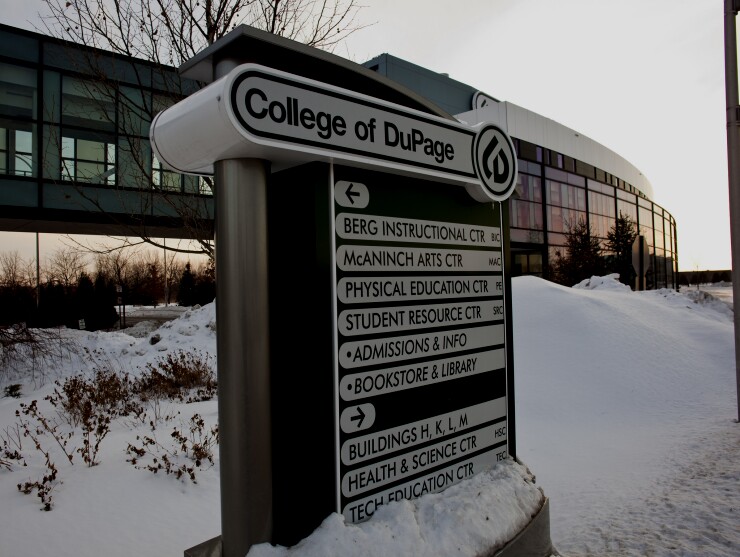CHICAGO – The College of DuPage west of Chicago inched closer to the restoration of one of the triple-A ratings it lost in 2016 over its governance turmoil that threatened its accreditation.
Moody’s Investors Service shifted its outlook to positive from stable while affirmming its Aa1 rating for the two-year school based at Glen Ellyn in DuPage County. It's formally known as Community College District 502.
The action impacts $230 million of debt and the review comes ahead of the school’s planned $32 million general obligation refunding of 2007 bonds.

“The positive outlook reflects the removal of the district's accreditation from probation as officials have made progress towards improved governance,” Moody’s wrote in its report published Wednesday. The school does remain subject to additional reporting requirements.
The school’s strong fiscal performance during the state’s record two-year budget impasse that stripped higher education of its full funding levels was also a contributing factor. Most of the state’s public community colleges rely more heavily on local tax funding than state aid so their credits fared better than the state’s four-year public universities, some of which are now rated at the junk level.
The Aa1 reflects the district's substantial and diversified tax base that benefits from an affluent demographic profile, expected maintenance of healthy financial reserves, and available liquidity, Moody’s said. The district's exposure to an underfunded multi-employer pension plan weighs on the credit.
“A continuation of positive operations and progress towards meeting the higher learning commission criterion could result in upward rating movement,” Moody’s said.
The college lost its triple-A marks from both Moody’s and S&P Global Ratings in 2016 as a leadership and operations scandal unfolded. S&P dropped the college to AA with a negative outlook. Last March it shifted the outlook to stable.
The college had been stung by county and federal probes of administrative spending, contracts related to a fundraising arm, credits tied to its law enforcement academy, and other financial and oversight matters.
At the same time, a very public feud played out between some board of trustee members and the former administration that led to the ouster of the school's president and finance team. The officials who were forced out filed wrongful termination lawsuits. Former chief financial officer Thomas Glaser and controller Lynn Sapyta last year settled their lawsuits last June.
The board member who led reform efforts and helped get allies elected to the board to win a majority also resigned, leading to further upheaval and conflict.
The college’s ratings initially weathered the turmoil due its strong financial profile but both rating agencies acted after the Higher Learning Commission put the college on probation in late 2015 because of concerns over its financial and academic integrity and governance.
The accreditation report cited the college's acknowledgment of investment policy violations, alleged illegal and unethical conduct by employees that was not acted on by administrators, and no-bid contracts given to vendors with college board ties.
The commission removed the probation in November, according





